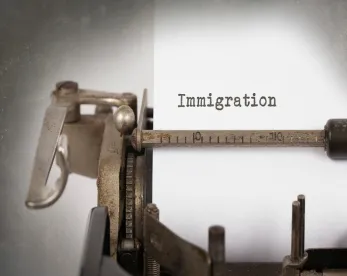One of the most celebrated bobsledders in the world recently became a citizen of the United States. Just in time to qualify for competition at the 2022 Beijing Winter Olympics. Kaillie Humphries’ story highlights the importance for international athletes to consider immigration aspects of competing in the international arena.
Who is Kaillie Humphries?
A recent USA Today article detailed Kaillie Humphries’ lengthy immigration journey. Humphries is a renowned Canadian-American bobsledder with a proven track record of success. She is a two-time Olympic gold champion in the two-woman category (in 2010 and 2014). She also won the bronze medal at the 2018 Olympics, and a number of world championships in the last decade. Humphries is justifiably regarded as the most successful Canadian bobsledder in history.
In 2018, the athlete’s association with the Canadian Olympic team became contentious. Humphries filed complaints of verbal and emotional abuse against several high-ranking officials affiliated with the Canadian bobsled federation, Bobsleigh Canada Skeleton (“BCS”). The allegations and subsequent investigation have been the source of significant controversy and press.
Stateless: Kaillie Humphries Abandons Her Canadian Affiliation
In light of these allegations, Humphries formally petitioned to be freed from her association with the team, pursuant to requirements of the International Bobsleigh & Skeleton Federation (“IBSF”). In September of 2019, the IBSF granted her request, and she began to compete for the United States. While she was not born in the United States, Humphries is married to a U.S. bobsledder.
With the 2022 Olympic Games in Beijing on the horizon, Humphries found herself in a predicament. By freeing herself of her Canadian affiliation, Humphries, a Canadian citizen at birth, became stateless in the eyes of the International Olympic Committee (“IOC”), which governs the regulations for participation in the Olympics.
Regulations of the International Olympic Committee
The IOC sets strict rules for individuals hoping to represent a country at the Olympic Games. Notably, these regulations require citizenship of the representative country. It is common practice to allow individuals to obtain dual citizenship in order to compete for countries other than the country for which an athlete holds naturalized citizenship. In fact, athletes have even competed independently of national affiliation for reasons including political transition.
Competing as a U.S. Citizen
Having completed the involved process required to become a United States citizen, Humphries is now eligible to represent the United States at the upcoming Beijing Winter Olympics in February of 2022.
Following the 12,000-mile round trip from Germany to the United States to formally complete her citizenship process, Humphries capped off her week in predictable fashion, securing not one, but two wins, her first two as an American. With her hand over her heart, she affirmed it was her “first win, officially, as an American.”
Humphries’ immigration journey highlights the need for international athletes to consider the immigration consequences of national association.



 />i
/>i

